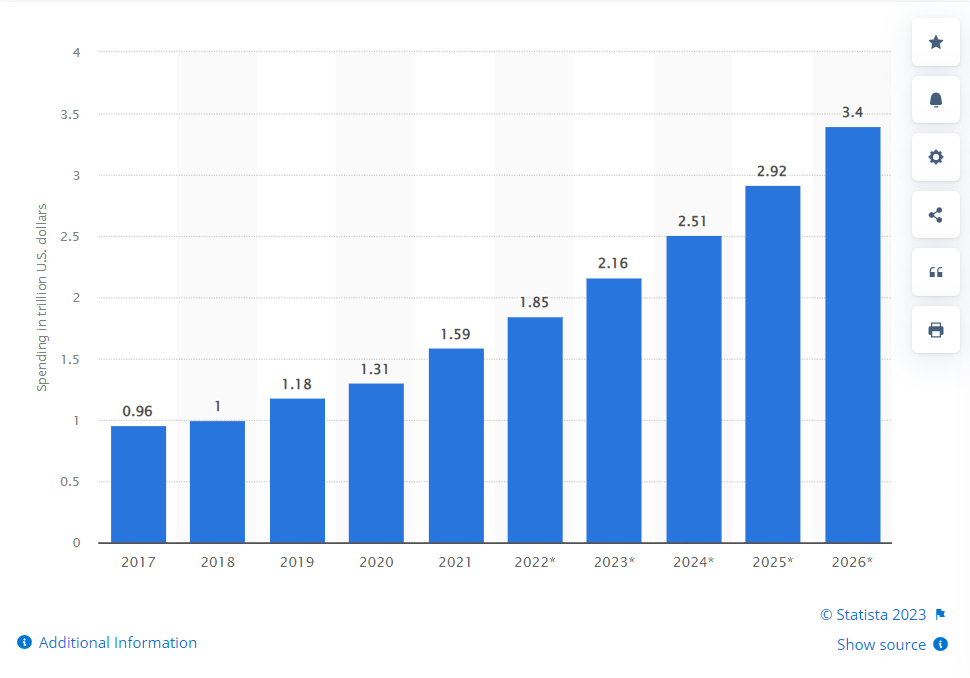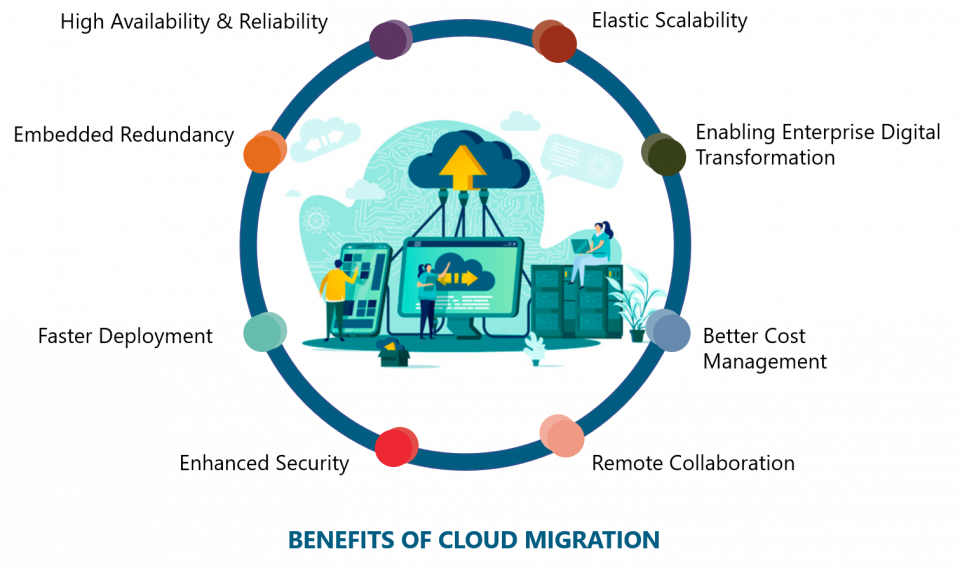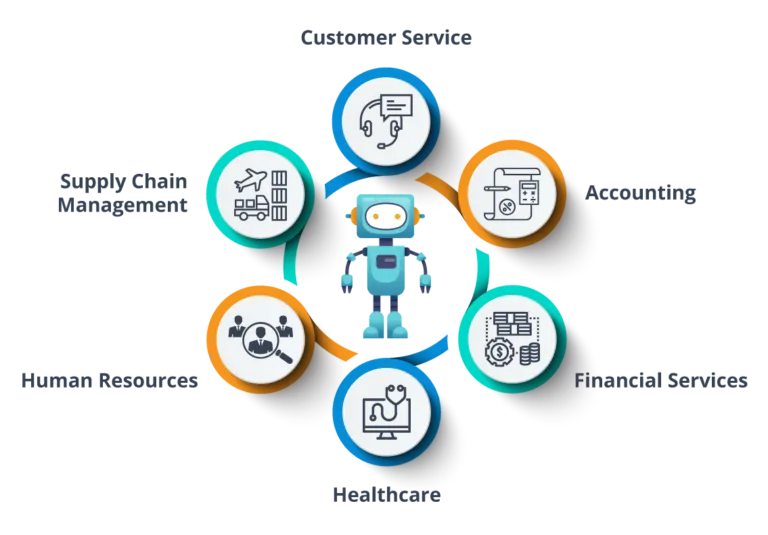Table of Contents

Blog Summary: Digital transformation is pivotal to improve your business efficiency and sustain in this competitive market. To help you do it right, here we will discuss the perks of digital transformation, the top digital transformation trends, their use cases, and more in this blog.
We are living in an era where every other thing is getting digitized. Shopping, entertainment, financial transactions, marketing - there is a digitized version of everything. No wonder businesses from diverse sectors have already embraced this digitization increasingly over the past decade.
We are living in an era where every other thing is getting digitized. Shopping, entertainment, financial transactions, marketing - there is a digitized version of everything. No wonder businesses from diverse sectors have already embraced this digitization increasingly over the past decade.

Be it boosting your brand presence or ensuring environmental sustainability - adopting the right digital technologies and solutions can help you gain the upper hand amidst the fierce market competition. Here are some stats to give you a glimpse of the spiking adoption of digital transformation tools and solutions -
✅The global digital transformation market is forecast to grow to US $1009.8 billion by 2025.
✅70% of the businesses/organizations have already adopted a digital transformation strategy or planning on the same.
✅Over 50% of the startups have a robust digital transformation strategy.
And the list goes on!
It is evident that to stand tall from the crowd of digitally transformed businesses, you need to opt for top-notch new digital technologies or digital transformation technologies as well as should have a piece of good knowledge of the digital transformation industry.
To help you with that, we have listed out the top 7 digital transformation trends to dominate the digital transformation industry in 2025 and beyond. So, let’s get started!
What Is Digital Transformation?
Digital transformation is defined as the process of adopting suitable digital technologies, tools, solutions, and strategies to improve your business’s existing processes, approach, culture, and presence to meet the business goals better and faster.
Looking for the right software development company to partner with?
With over more than 10 years of experience in software development, we, at Third Rock Techkno, offer a broad range of software development services and solutions. Our expert professionals not only ensure timely project completion and product launch within budget, but also help your product find the right market positioning and help you grow to meet your business goals.
Get in touch with us for free consultation!
A digitally transformed business has better automated workflows, and processes, as well as an enhanced digital presence. Also, through digital transformation, your business can be a better fit for the present market and improve the customer experience manyfold.

Hold on, that’s not it! There are unlimited benefits to adopting the right digital transformation trends for your business -
👉Automated and faster workflow
👉Improved data collection
👉Better resource management and optimization
👉Improved market positioning
👉Better digital culture
👉Increased agility
👉Higher productivity
👉Enhanced digital presence
See More: The 5 Most Common Digital Transformation Challenges
A Complete List of the Top 7 Digital Transformation Trends in 2024 and Beyond
The spending on digital transformation technologies and tools grew dramatically over the past 5 years to reach US $1.85 trillion in 2022 and is set to spike further to reach US $3.4 trillion by 2026.

Here are the top 7 digital transformation trends that are ruling the digital transformation industry.
1. Hyperautomation
Hyperautomation is one of the top current digital transformation trends and is expected to remain one of the key digital future trends. Hyperautomation is a business-centric approach that maximizes the automation of business processes like production processes, business workflows, sales and marketing, delivery process, and others with AI (Artificial Intelligence), ML(Machine Learning), and RPA (Robotic Process Automation).

Use Cases:
✅Quality protocols monitoring and complying, claims processing, inventory management
✅Finding potential matches, filtering, sorting, and processing applications, removing spam, data storing and processing in recruitment
✅Faster response and customer queries resolving through chatbots
✅Supply chain optimization, inventory management, invoice processing, data analysis, and data-driven decision-making through NLP (Natural Language Processing) and optical character recognition
✅Automated lead outreach, conversion, and sales workflows
✅Faster and optimized actuarial analysis, claim management, claim management, underwriting, service request processing, and cross-selling in finance & insurance
✅Automating, optimizing, and improving IT & business processes, billing cycles, sales and marketing workflows, and product delivery cycles
2. AI & ML
AI is the stimulation of human intelligence in machines, precisely in computer systems, tools, and solutions. Machine Learning, on the other hand, is a branch of AI that helps systems learn from past data and improve further to provide more accurate outputs. ML is focused on developing computer programs that can access and learn from data.

Use Cases:
✅Real-time chatbots for improved customer service
✅Personalized recommendations for customers
✅Image classification and image recognition
✅Tailored advertising and marketing campaigns
✅Data transfers and file upgrading
✅Demand forecasting in sales
✅Repetitive tasks management
✅Candidate profiles analysis, organization network analysis
✅optimized IT processes, reduced operational silos
3. Software 2.0
Software 2.0 is one of the most in-demand digital transformation trends which reduces the complex and tedious tasks of writing codes. In software 2.0, you can program by example instead of writing lengthy codes.
The steps involved in Software 2.0 are as below -
Data sets analysis → data patterns identification → data models creation
It is based on DL (Deep Learning) which helps in drafting codes automatically through neural networks.

Use Cases:
✅Faster data sources processing for images, texts, videos, and audio
✅Content moderation
✅Predictive maintenance
✅Facial recognition
However, one needs to have in-depth knowledge and expertise in accumulating, cleaning, training, and sourcing large data sets to utilize Software 2.0.
4. Data Fabric
Data fabric is a well-known name in the current digital transformation trends. Data fabric is defined as an architecture that offers an easy and fast end-to-end integration solution for various data pipelines and cloud environments.

Use Cases:
✅Solving complex data problems
✅Easier data management for diverse data storage locations, platforms, and applications
✅Seamless data access and sharing in a distributed environment
✅Efficient data delivery
✅Data complexity management
5. Everything as a Service (XaaS)
Everything as a service has emerged as one of the fast-growing digital transformation trends. This refers to a simple-to-use ‘as a service’ model to deliver specific products, solutions, and others to the customers. There are several advantages of XaaS such as higher flexibility, a better delivery model, and time and cost optimization to name a few.

Use Cases/ Examples:
✅Software as a Service (SaaS)
✅Platform as a Service (PaaS)
✅Infrastructure as a Service (IaaS)
✅Communication as a Service (CaaS)
✅Database as a Service (DBaaS)
✅Network as a Service (NaaS)
✅Disaster Recovery as a Service (DRaaS)
✅Desktop as a Service (DaaS)
6. Cloud Migration
Undoubtedly cloud migration tends to remain one of the top digital future trends in the coming year. Cloud migration refers to the process of migrating your business’s data, application, and other digital operations and business processes to a cloud platform or cloud computing environment.

There are innumerable advantages of cloud migration such as higher agility, better flexibility, robust security, cost reduction, simplified IT operations, and improved customer experience, to name a few.
Use Cases:
✅Bulk business data migration
✅Continuous streaming data ingestion
✅Continuous on-premise data migration
✅Business digital assets and services migration
✅IT resources and applications migration
7. Robotic Process Automation (RPA)
Robotic Process Automation or RPA is one of the widely adopted digital transformation trends among businesses. RPA is defined as an advanced software technology that simplifies the process of building, deploying, and managing software robots to automate digital tasks.

There are a lot of perks of adopting RPA such as higher productivity, optimum efficiency, robust business data security, better customer experience, and improved scalability.
Use Cases:
✅Improved lead generation
✅Higher sales order
✅Faster invoice and refund processing
✅Payroll processing and management
✅Accounting and financial reporting
✅Streamlining the recruitment process
✅Data extraction and processing
✅Improved security and compliance
✅Better disaster recovery
✅Sensitive information transfer and management
See More: 5 Healthcare Blockchains Use Cases in Digital Health
Knowing the present digital transformation trends is crucial for you to determine which one among them you need to adopt and utilize. With digitization taking over the globe, such trends are not going to be completely obsolete. But to pace up with the present and near-future market trends, you need to be well aware of them.
The above information will help you have a clear idea about the present digital transformation trends, new digital technologies, digital future trends, and the digital transformation industry better. All you need to do is chalk out your key requirements and opt for the top digital transformation technologies as per your business type.
To ensure that your business adopts the much-needed digital transformation trends, ensure that your every product, app, or solution is up-to-date. Third Rock Techkno offers a range of digital tools, products, apps,s and web development solutions that are completely aligned with the latest digital transformation trends. Check out our portfolio and contact us to get started!
FAQs
1. What is digital transformation?
Digital transformation is the process of upgrading your existing business by adopting the most suitable digital tools and technologies.
2. What are the top digital transformation trends?
Some of the top digital transformation trends are AI & ML, RPA, cloud migration, and Software 2.0, to name a few.
3. What are some predicted digital transformation trends?
Some of the digital future trends are everything as a service, data fabric, hyper-automation, and AR cloud, to name a few.
4. Why do you need to digitally transform your business?
You must digitally transform your business to optimize and improve the core business processes, ensure cost reduction and better resource utilization, and improve customer experience. Also, it will help secure a better market position amidst the strict competition.


